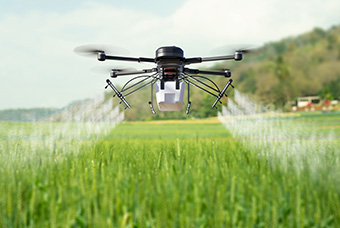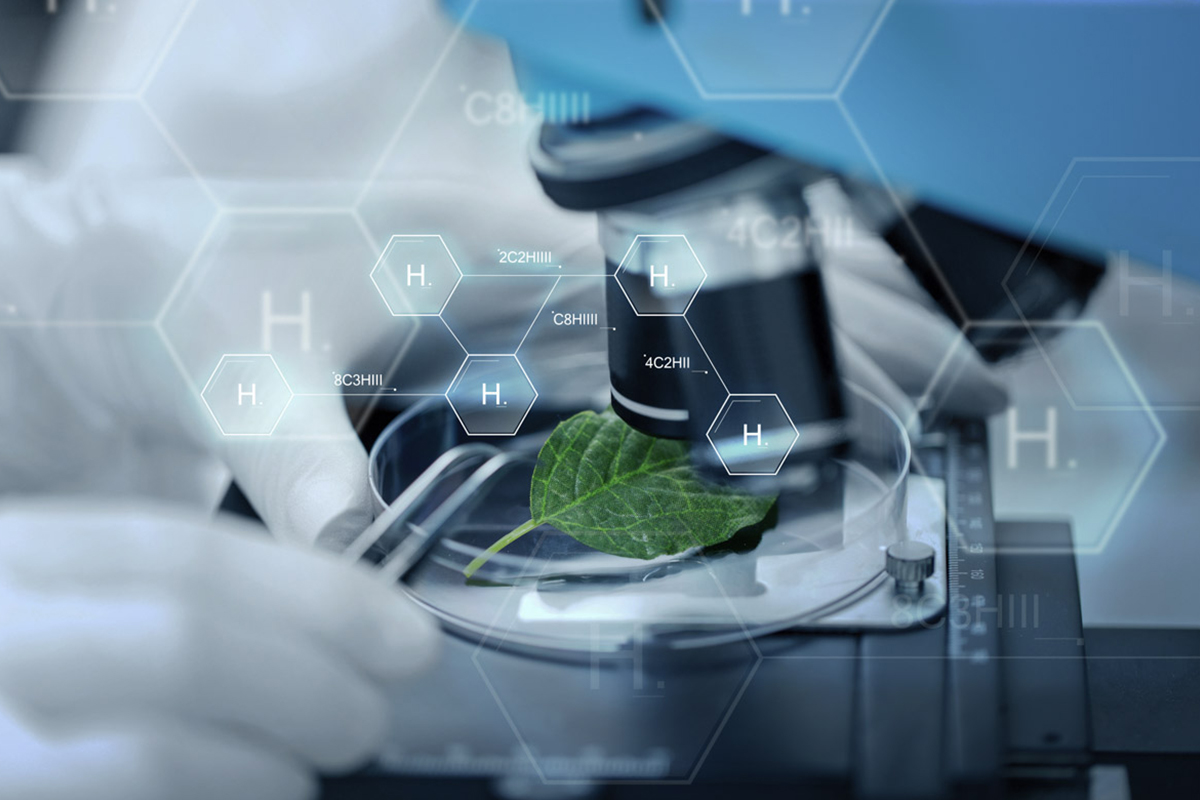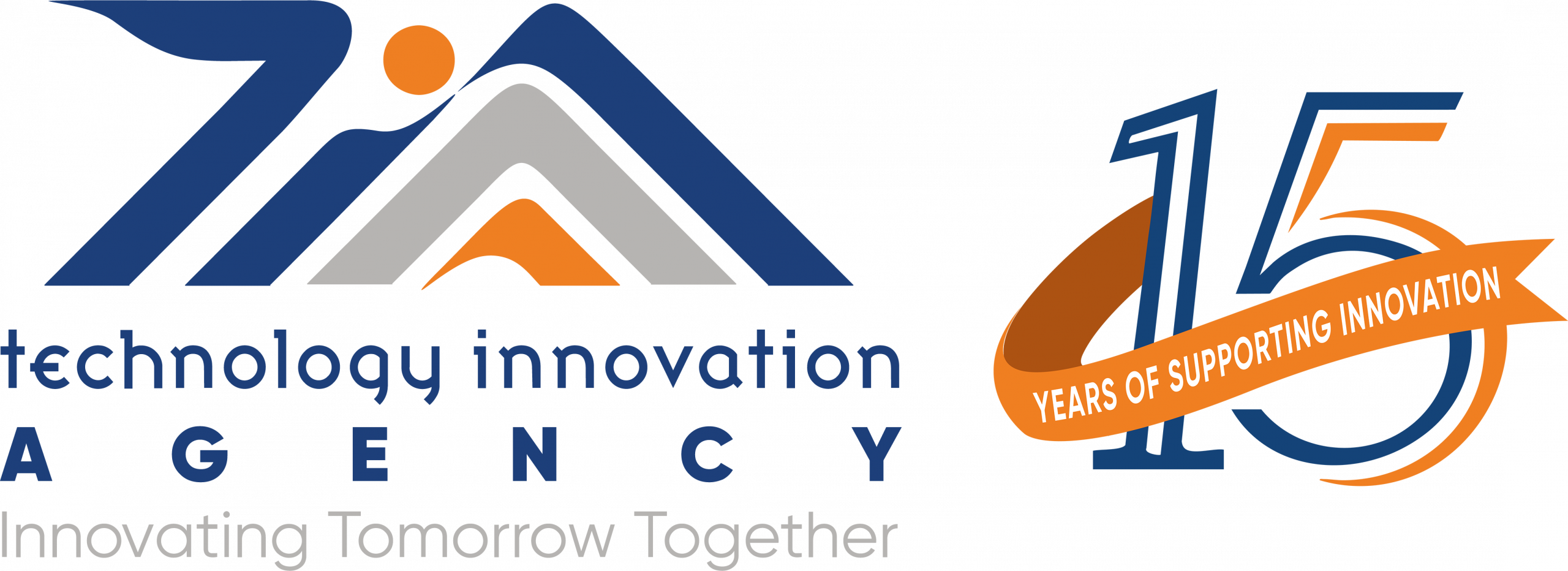TIA enables and supports technology innovation across all sectors of the economy to deliver socio-economic benefits for South Africa and to enhance its global competitiveness.
Industry sector funding
Menu
Advanced Manufacturing
Supports the development of a knowledge economy in manufacturing by accelerating both the manufacturing capability and the knowledge intensity of the industry, and to increase and sustain competitiveness and innovation in South Africa’s manufacturing industry.
Focus areas:
- Advanced Electronics
- Production Technologies, Automation and Robotics
- Advanced Materials (lightweight, composite, nano, etc.)
- Photonics
- Chemicals
- Additive Manufacturing
- Fourth Industrial Revolution (Industry 4.0 and Converging Technologies)


Supports the development of a knowledge economy in manufacturing


Supports technologies with potential for commercialisation
Agriculture
Supports technologies with potential for commercialisation and that contribute towards competitive, sustainable, and inclusive agriculture and agri-business value chains. This includes improving the diffusion of appropriate agricultural technologies to small-scale and emerging farmers.
Focus areas:
- Breeding and reproductive technologies
- Animal health and nutrition
- Plant health and nutrition
- Agroprocessing and post-harvest technologies
- Smart agricultural technologies
- Biosecurity
Clusters:
Agriculture Bioeconomy Innovation Partnership Programme
The Agriculture Bioeconomy Innovation Partnership Programme (ABIPP) was established as an instrument to contribute towards the objectives of the Department of Science and Innovation’s (DSI) Bioeconomy Strategy where the agricultural sector was identified as one of the three crucial elements. The Bioeconomy Strategy’s objective for agriculture is to strengthen agricultural biosciences innovation to ensure food security, enhance nutrition and improve health, as well as enable job creation through the expansion and intensification of sustainable agricultural production and processing. The principles for development of the Agricultural Bioeconomy are namely; coordination, partnerships, co-funding, a value chain approach and inclusivity. These principles are the basis of the establishment of the ABIPP.
ABIPP is a mega-programme that funds, co-funds, coordinates, facilitates and actively manages multi-disciplinary, multi-institutional research programmes focusing on agricultural bio-innovation, product processes and services contributing to increased productivity, food security and sustainable rural development. The programme encourages collaboration on national priorities and promotes global competitiveness of the agricultural sector.
The objectives of ABIPP are:
- To develop and commercialize new crops and animal species;
- To support the ongoing improvement of commercial varieties of plants and animals for sector competitiveness and national food security; and
- To provide bio-innovation-based knowledge, capacities/skills development, technologies, and agricultural support that will underpin the innovativeness, competitiveness and sustainability of the sector as per the Agriculture Policy Action Plan (APAP) and the National Development Plan (NDP).
Energy
Supports the development of innovative energy technologies that will result in a competitive and sustainable energy industry. TIA supports technologies that can foster the transition to a low carbon economy and improve the lives of South Africans. TIA will contribute towards resolving the energy challenge by focussing on technologies that have the potential to create jobs and stimulate economic growth.
Focus areas:
- Renewable energy
- Energy Storage
- Fuel Cells
- Hydrogen and Fuel cell technology
- Electric Vehicles
Clusters:


Supports the development of innovative energy technologies


Aims to enhance South Africa’s global competitiveness in the health arena
Health
In the Health sector, TIA aims to enhance South Africa’s global competitiveness in the health arena and to deliver socio-economic value through technological innovation in healthcare products and services, addressing the diagnosis, prevention and /or treatment of priority disease areas within South Africa. It further seeks to stimulate and support the development, registration, manufacture and commercialisation of products and services which address the healthcare needs of the country and support the local industry.
TIA facilitates the translation of South Africa’s knowledge resource into sustainable socio-economic and health technology-based commercial opportunities, by providing risk funding and catalysing partnerships between SMMEs, industries, universities, and science councils to support health-specific innovations for global competitiveness.
Focus areas:
The priority diseases that have been identified as having the greatest impact on public health and quality of life in South Africa and Sub-Saharan Africa, include HIV/AIDS, tuberculosis, malaria, respiratory diseases, and non-communicable diseases such as diabetes, cardiovascular disease, and cancers. The goal is to stimulate and support the development, registration, manufacture, and commercialisation of products and services which address the healthcare needs of the country and support the local industry.
- Therapeutics (API manufacturing and drug development)
- Precision Medicine
- Medical devices
- Digital Health
Clusters:
ICT
Supports the development and exploitation of ICT driven innovations with a broad social-economic impact. In ICT, TIA seeks to address the challenges of unemployment, inequality, and poverty.
The supported innovations are for the stimulation of the South African digital economy as directed by the Department of Science and Innovation 2022 – 2031 Decadal Plan. It further supports grassroots innovators and the development of technologies that will increase South Africa’s competitiveness and participation in the fourth industrial revolution. TIA aims to increase SA’s competitiveness by enabling innovators to actively participate in the development of 4IR technologies while contributing to ensuring that the national goal of broadband universal access is achieved. In so doing, the agency seeks to achieve the objectives the ICT RDI Roadmap, with specific emphasis on AI, big data, wireless connectivity, and scalable inclusive ICT solutions.
Focus areas:
- Digital Economy
- Artificial Intelligence
- Advanced Communication Systems
- Cyber infrastructure and Cyber security


Supports the development and exploitation of ICT driven innovations


Supports innovations to harness indigenous knowledge and ideas
Indigenous Knowledge Systems
Indigenous knowledge systems (IKS) encompass the accumulated and generated knowledge, wisdom, practices, and beliefs of various indigenous (local) people worldwide. Rooted in centuries of lived experience of know-how and deep connection of local communities to the land this enables them to have a stable livelihood over time.
IKS offer holistic perspectives on agriculture, food preparation, health care, education and training, environmental conservation, healing and spiritual activities passed down orally through generations for sustainable living... IKS emphasise harmony with nature, community cohesion, and respect for ancestral wisdom. Despite facing threats from globalisation and modernisation, efforts to preserve and integrate IKS into contemporary society are crucial and as well as prioritising research and development of IK based innovations for herbal and natural product manufacturing and commercialisation purposes.
TIA supports Indigenous Knowledge based innovations to harness innovations with a focus on African traditional medicines, cannabis & hemp, cosmeceuticals (IK-based), ethnoveterinary, health infusions and nutraceuticals to serve as a source for technology transfer and commercialisation opportunities. TIA further supports technology advances in IK-based ethnoveterinary, natural products, cannabis and hemp.
TIA’s support towards IKS innovations further contributes to the South African government’s initiative on the commercialisation of South Africa’s biodiversity through sustainable herbal product manufacturing Southern African region and global benefit. IK based innovations, owing to South Africa’s rich biodiversity, serve as a conduit for appreciated developments in various fields such as primary healthcare, public health and biotrade, all through sustainable development ecology.
Thematic IKS areas:
- African traditional medicine
- Cannabis and Hemp
- Cosmeceuticals
- Ethnoveterinary
- Health infusions
- Nutraceuticals
Industrial Biotechnology
Supports innovations to make impact in sectors such as the chemicals sector and various bioprocessing industries to produce high-value products with commercial application in various sectors including cosmetics, mining, as well as crop and animal health.
Focus areas:
- Biobased Materials and Chemicals
- Industrial Enzymes and Biocatalysis
- Bioremediation
- Biofuel Production Technology
Clusters:


Supports innovations to make impact in sectors such as the chemicals sector and various bioprocessing industries


Supports technologies to sustainably improve process efficiencies in the extraction and exploitation of natural resources
Natural Resources
Supports technologies to sustainably improve process efficiencies in the extraction and exploitation of natural resources (mining) the unit also support reduce worker exposure to hazards. As mining is a priority thematic area in the DSI Decadal plan, TIA as an implementing agent, prioritises innovations that will enhance the economic competitiveness of the South African mining sector.
In Natural Resources, TIA’s strategic focus areas are water resources management, waste management (circular economy, environment), climate change, mining and minerals processing. The focus is on ensuring water security by using advanced technologies to sustainably improve efficiencies in solving the water crisis, supporting the development of technologies that minimise impact on the environment from waste. TIA funds and supports technologies in the circular economy and the net-zero initiatives and sustainably improve process efficiencies in the extraction and exploitation of natural resources (mining) the agency also support reduce worker exposure to hazards.
Focus areas
Mining:
- Automation & digitisation
- Mining beneficiation
- Sustainable process technologies
- Health & Safety
- Environmentally responsible technologies
Water:
- Prevention of water leaks
- Acid mine drainage
- Digitisation of water processing
- Infrastructure support for water reticulation
- Nanotechnologies in water
Circular economy:
- Developing new technologies
- Reduction of waste
- Improved reuse of materials
- Reduction of landfill sites
- Addressing plastic i
- Net Zero
